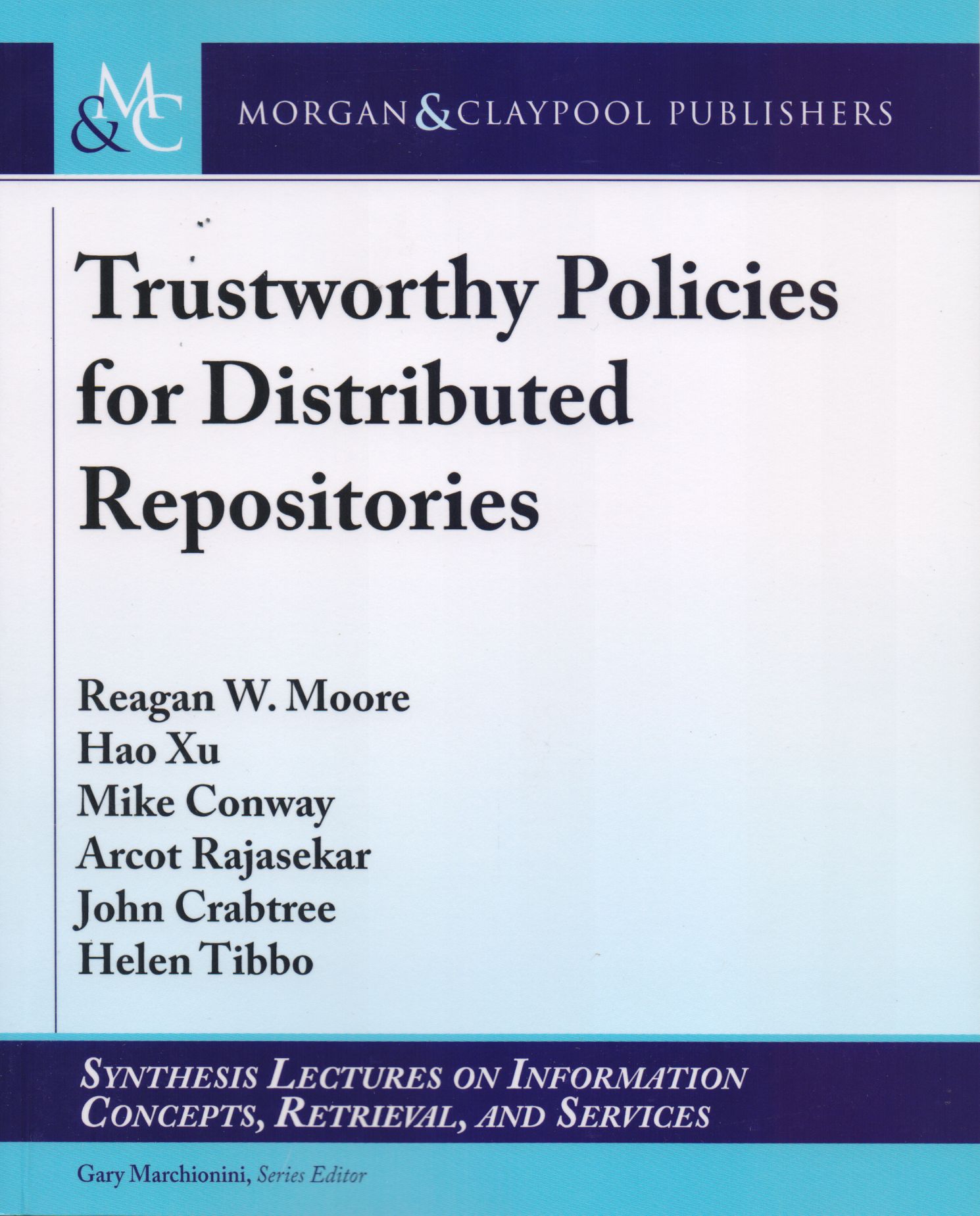Libros relacionados
 |
Repensando la Sostenibilidad Desde las Humanidades y las Ciencias Sociales: Defi Echenberg, Margo / García-González, Dora Elvira (Editoras) Bonilla Artigas Editores |
 |
Clima, Naturaleza y Sociedad: los Retos del Cambio Climático en los Socio-Ecosis Gómez Mendoza, Leticia (Coord.) Bonilla Artigas Editores |
 |
Scholarly Collaboration On The Academic Social Web He, Daqing / Jeng, Wei Morgan & Claypool Publishers |
 |
Database Anonymization: Privacy Models, Data Utility, And Microaggregation-Based Domingo-Ferrer, Josep / Sánchez, David / Soria-Comas, Jordi Morgan & Claypool Publishers |
 |
Dynamic Information Retrieval Modeling Hui Yang, Grace / Sloan, Marc / Wang, Jun Morgan & Claypool Publishers |
 |
Learning From Multiple Social Networks Nie, Liqiang / Song, Xuemeng / Chua, Tat-Seng Morgan & Claypool Publishers |
 |
Trustworthy Policies For Distributed Repositories W. Moore, Reagan / Xu, Hao / Conway, Mike / Rajasekar, Arcot Morgan & Claypool Publishers |


|
Título: Science In Environmental Policy | |
| Autor: Campbell Keller Ann | Precio: $364.00 | |
| Editorial: The Mit Press | Año: 2009 | |
| Tema: Informacion, Cambio Climatico, Politica | Edición: 1ª | |
| Sinopsis | ISBN: 9780262512961 | |
| Scientists often bring issues to the policy agenda, translating scientific questions into everyday language and political terms. When Roger Revelle characterized Earth as a spaceship in testimony to Congress in 1957, his evocative language framed the issue of our planet's climate vulnerability in a way that technical discourse could not. In this book, Ann Campbell Keller examines the influence of scientists on environmental policy and makes the novel argument that scientists' adherence to the role of neutral advisor varies over the course of the policy-making process.
Keller divides the policy process into three stages_agenda setting, legislation, and implementation_and compares scientists' influence on acid rain and climate change policy at these different stages over the course of several decades. She finds that scientists face more pressure to uphold the ideal of objectivity as policy-making processes advance and become more formalized, and thus are more likely to engage in advocacy and persuasion in the earlier, less formal, agenda-setting stage of the process. In the later, more structured legislative and implementation phases, scientists_working hard to give the appearance of neutral expertise_cede the role of persuader to others. Keller draws on theoretical work in political science and science studies and on empirical evidence from scientific reports, news coverage, congressional hearings, and interviews. Focusing on comparable cases and considering scientists' participation in them over time, she offers insights into how the context of decision making affects scientists' policy influence and emphasizes the multiple pathways by which scientific meaning is constructed in public settings. |
||
Librería Bonilla SA de CV © Todos los derechos reservados. 2019
Última actualización: Jul 2019




